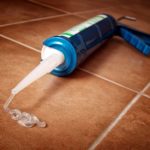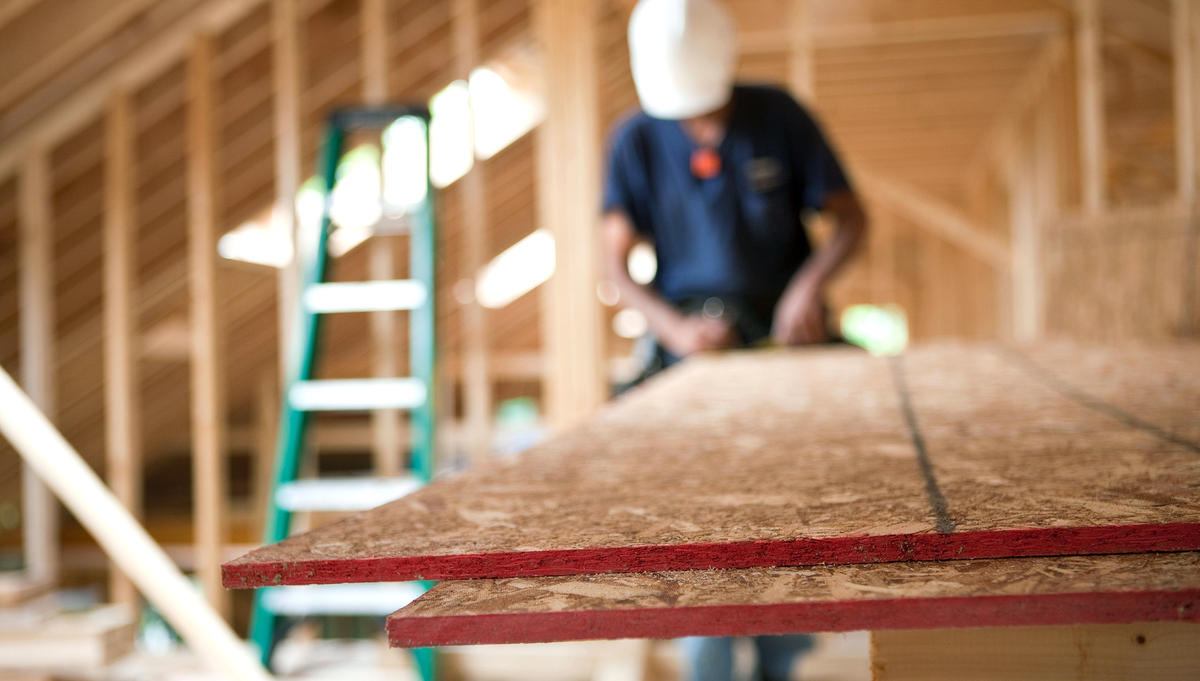Which liquid nails are better?
Liquid nails are a wonderful tool invented in the 60s of the twentieth century in the USA. Despite the name, they have nothing to do with standard fastening manufactory, but are construction adhesives with a special content. The liquid state not only does not affect the quality, but also increases the ease of use of the tool: with the help of an unusual building mixture, you can combine any finishing materials without hassle.
But you need to approach your choice wisely, after all, first-class nails must be safe, meet the stated characteristics, fully satisfy the buyer’s requirements, and have an adequate price. Fortunately, the domestic construction equipment market offers a large assortment of fastening products, which allows you to choose the best option. A rating based on expert opinions will help you decide on a purchase.
The content of the article
Which liquid nails are better: selection criteria
A wide range is not always good, because it greatly complicates the choice, and can confuse a novice builder. To prevent this from happening, experts have identified several main characteristics that you should pay attention to before purchasing:
- Drying time. For example, if we are talking about installing wall or ceiling structures, then preference should be given to quick-drying products.
- Compound. Before purchasing, you should carefully study the components: high-quality ones should not contain chalk. Of course, this natural substance is harmless, but it significantly impairs the quality of adhesion.
- Acetone. It's better if he's absent.
- Moisture resistance. This parameter must be taken into account when planning outdoor work or repairs in wet areas.
No less important:
- price;
- appointment;
- safety;
- specifications;
- customer reviews and expert opinions.
Reference. Long polymerization times significantly complicate the process.
Rating of liquid nails
Taking into account all the listed parameters, a list of the best building compositions was compiled. For convenience, the positions are divided by purpose.
Universal
Broad-spectrum materials are the most convenient way to connect two items. Armed with just one cartridge, you can safely begin to implement your design ideas.
Experts advise paying attention to the following brands.
Point 98 All Season
Neoprene composition based on natural rubber. Suitable for both outdoor and indoor work. Complete drying time is 72 hours. Has a wide range of applications: allows you to glue concrete, plastic, brick.
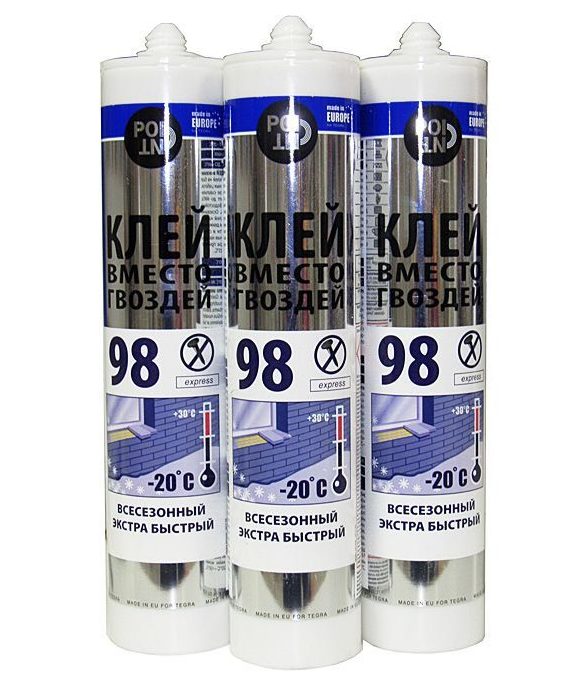
Advantages:
- reasonable price;
- quality connection.
Flaws:
- Inconvenient to use. The consistency is too thick, so Point 98 is difficult to squeeze out.
- Big expense.
- Limited range of applications. Point 98 is not suitable for bonding mirrors, Teflon, polypropylene and other solvent-sensitive components.
"Moment Express MV-80"
Used for gluing most indoor coatings. Optimal for:
- wood, drywall, PVC panels, decorative items;
- skirting boards;
- window sills, door jambs, window frames.
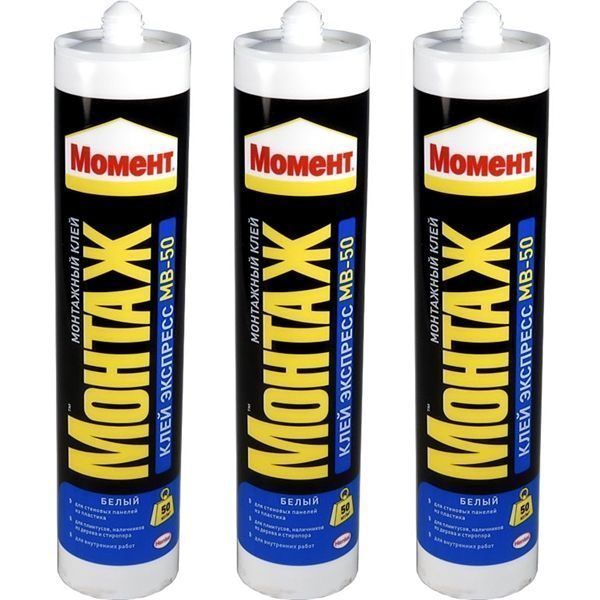
Reference. Usage nuance: one of the surfaces to be treated must absorb liquid.
Pros:
- excellent grip;
- wide range of applications;
- suitable for use in damp areas;
- retains properties at low and high temperatures;
- safe - there is no solvent among the components;
- can be painted.
The downside is that it takes a long time to dry.
For tiles
Despite the wide range of applications of universal solutions, sometimes situations arise when it is better to use narrow-profile varieties. So, experts identify the following brands for working with tiles.
LIQUID NAILS LN-901
Neoprene mortar from the USA is considered a classic option for gluing tiles. LOQUID is also optimal for fixing wood, plastic, plasterboard, brick and concrete.
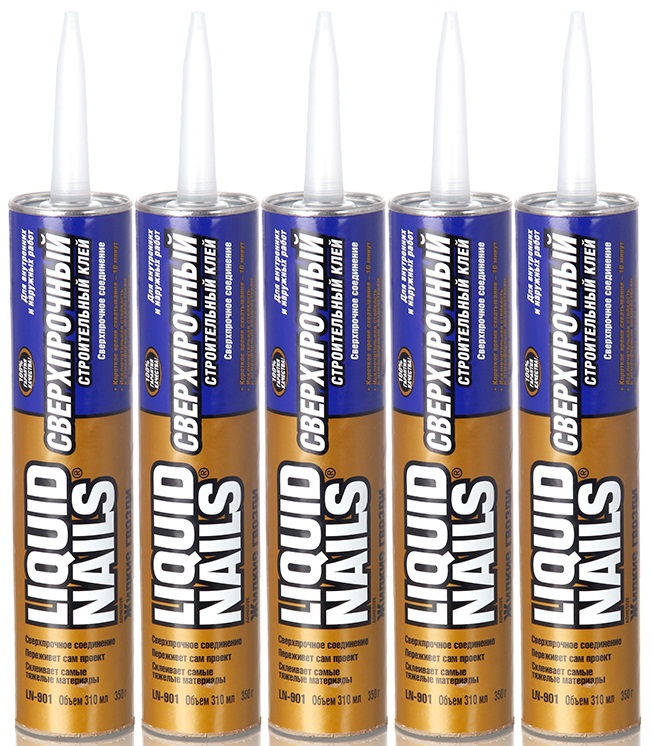
Reference. Professionals note the ability to make adjustments within 10 minutes after applying glue to both objects being joined.
Positive characteristics:
- versatility;
- convenient use;
- resistance to mechanical stress.
The downside is the high cost.
Tytan "Ceramics and stone"
It is environmentally friendly - Tytan contains no organic solvents. Thanks to this, the product does not have a specific pungent odor, which means that the room does not need to be ventilated.
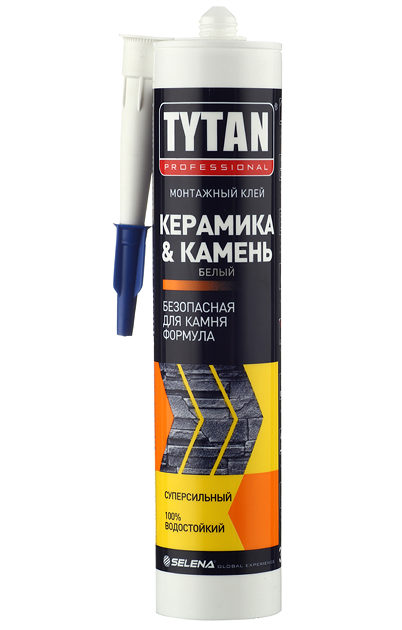
Positive sides:
- safety;
- White color;
- high-quality gluing;
- can be painted.
Minus - lack of plasticity.
For plastic
The choice of tool for gluing plastic objects requires special attention. There are some that contain substances that corrode them.Several brands meet the stated requirements.
KRAFTOOL KN-915
Thanks to its structure, it is considered one of the best options for fixing plastic elements. It is also characterized by increased moisture resistance, therefore it is indispensable when decorating a bathroom or kitchen. Allows you to manipulate not only plastic, but also ceramics, metal, and plaster.
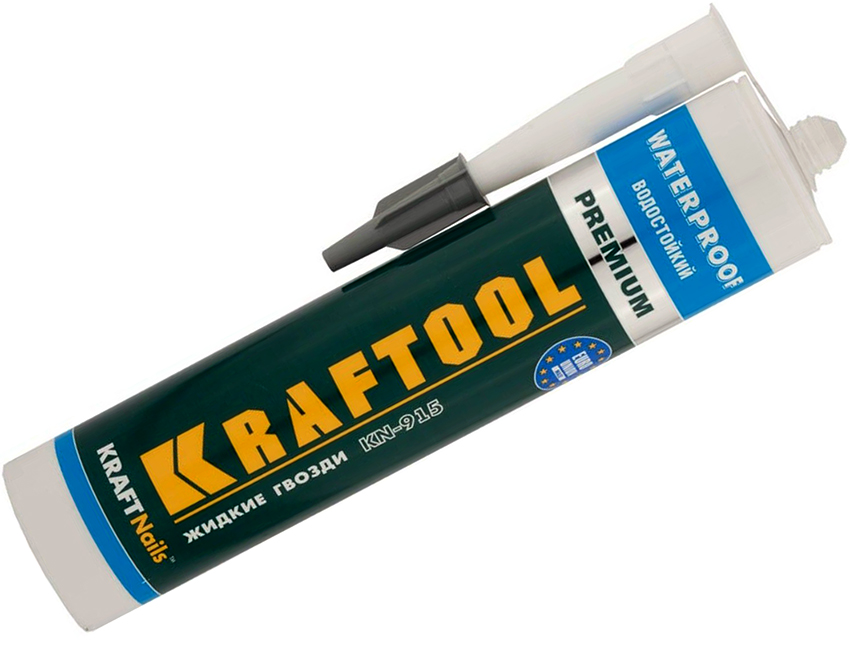
Advantages:
- increased frost and moisture resistance;
- excellent polymerization;
- contains an antiseptic;
- resistance to mechanical stress.
Disadvantages - high price.
Ceresit CB-100
Acrylic-based adhesive is characterized by fast drying and a wide range of applications. In addition to tiles, it can work with parts made of wood, plasterboard, and fix MDF panels.
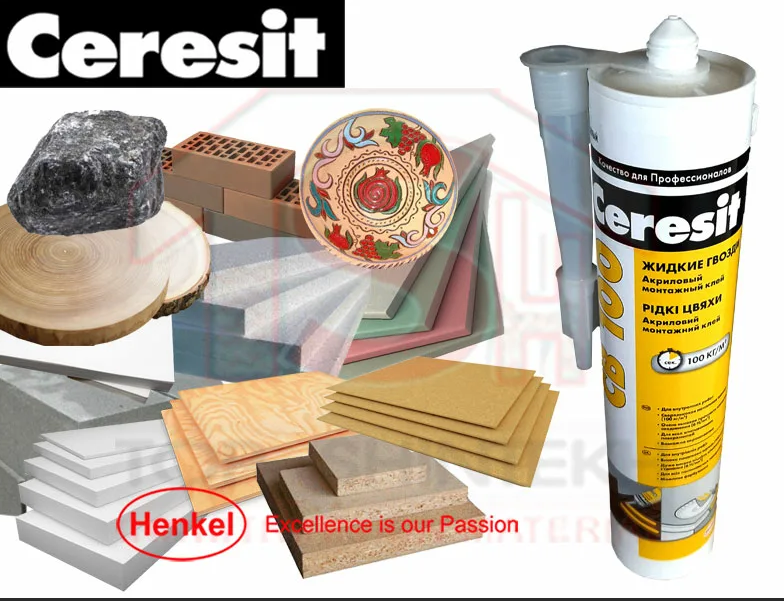
Pros:
- environmental friendliness;
- ease of use;
- quick drying and setting.
Minuses:
- low frost resistance - operation down to -25°C is allowed;
- high consumption.
For wood
This is a unique building material. In order to properly glue wood parts, adhesives must have excellent adhesion, penetrating properties and moisture resistance.
The following brands meet all requirements.
IRFix Installation
Does not contain solvents and is optimal for fixing concrete products, ceiling tiles, natural or artificial stone decor.
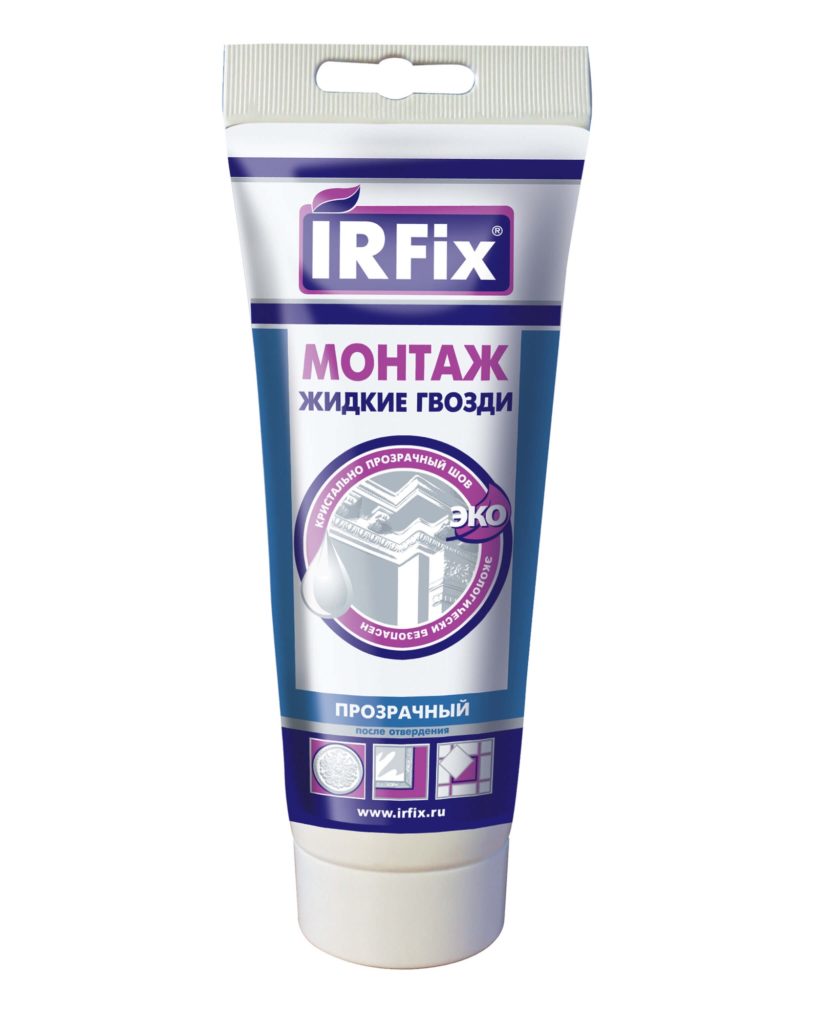
Reference. In addition to installing interior decorations, it is often used as a putty to fill small cracks.
Pros:
- high adhesion;
- environmental friendliness;
- versatility;
- reasonable price;
- convenient packaging - 310 ml cartridge.
The disadvantage is the short time period for making changes. It is considered especially critical for beginners and non-professional builders.
"Moment superstrong MV-70"
The water-based acrylic mixture has a wide range of applications.The main thing is that the parts being processed must be hygroscopic. Particularly good for installing wall panels and interior decorations.
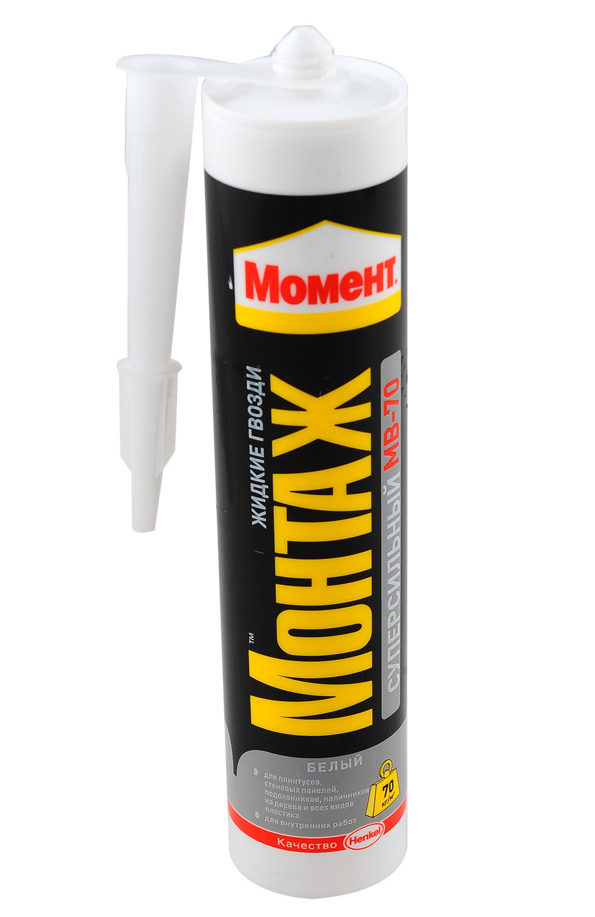
Pros:
- Versatility. You can work not only with wood, but also with plastic, ceramics, cork, PVC, polystyrene, and metal.
- Small expense. At 1 m2 You only need 200-400 g of glue. For fastening profiles, the cost is 20 g per 1 linear meter.
Minus - you cannot glue products made of polypropylene and polyethylene.
For stone, brick, concrete
Recently, wall decoration with brick or stone has become especially popular. But such materials are characterized by a large mass, which is why heavy-duty solutions with rapid polymerization are required.
Kraftool Kraftnails Premium super strong
Suitable for interior and exterior work. It has excellent adhesion, making it suitable for installing heavy decorative elements, wet and frozen wood, concrete, brick, plastic, and slate parts.
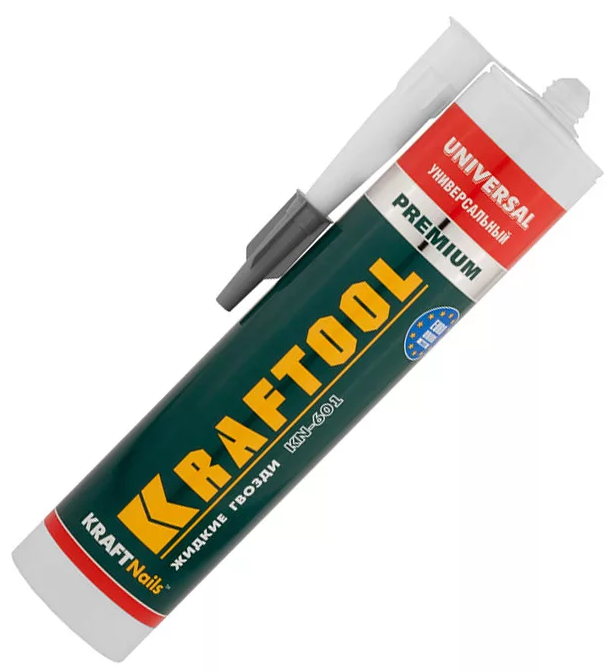
Positive sides:
- versatility;
- ability to work with heavy objects;
- wide range of temperature conditions: from -30 to +50°C;
- reasonable price.
No negative traits were found.
Master Teks
The highly effective mixture forms a subtle but very durable layer that can compete with self-tapping screws. Master Teks is successfully used for the installation of heavy, massive parts: MDF panels, large ceramic tiles, glass, floor coverings.
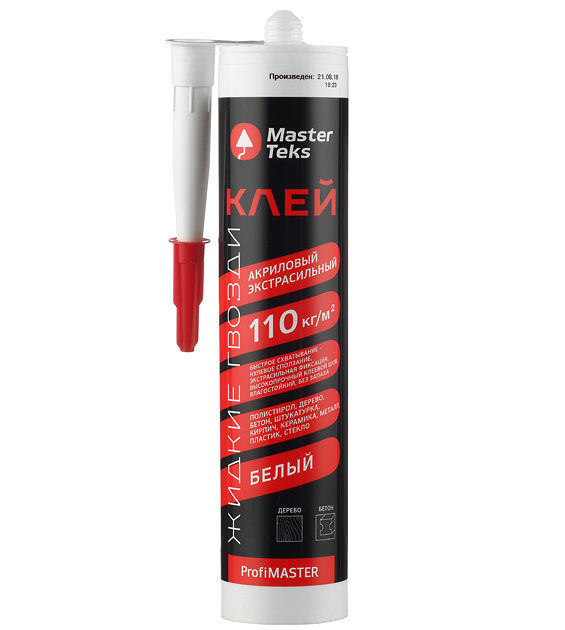
Pros:
- does not spread when applied;
- dries quickly;
- versatility;
- moisture and frost resistance.
No deficiencies identified.
If you carefully study the structure of liquid nails, find out the purpose and price, and consider the main parameters, then choosing the appropriate adhesive will be much easier.


